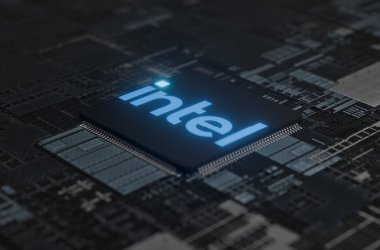 By launching the Open Compute Project (OCP) as a stand-alone foundation, Facebook is hoping to further standardise the market for data centre equipment, thereby reducing costs and vendor lock-in, the new foundation’s board members said.
By launching the Open Compute Project (OCP) as a stand-alone foundation, Facebook is hoping to further standardise the market for data centre equipment, thereby reducing costs and vendor lock-in, the new foundation’s board members said.
“What has been missing here has been standardisation at the systems level,” said Andreas Bechtolsheim, an OCP board member who co-founded Sun Microsystems and later was the first major investor in Google. He railed against “gratuitous differentiation” on the part of server vendors, who each have their own unique chassis or some other component that prevents users from intermingling the equipment with gear from other vendors.
On Thursday, at an event in New York, Facebook announced it has set up the Open Compute Project (OCP) as a stand-alone standards foundation. Executives from a number of IT companies, including Intel, Dell, Rackspace and Red Hat, have joined the governing board. The company first launched OCP in April, in order to share the best practices in data centre efficiency.
“OCP has been modeled after the Apache Software Foundation, in that it would sponsor and manage projects developed by third parties,” said Frank Frankovsky, a Facebook engineer who founded the project. Unlike the ASF, however, it would focus on open-source hardware projects instead of software. “Today, open-source isn’t just something you use to describe software, but it’s a way to describe hardware, as well,” said Frankovsky.
The effort would focus on developing a set of specifications that vendors could use to build interoperable equipment, something data center managers today sorely need, according to the foundation’s managers. If enough organisations demand equipment that meets these specs, the founders reason, the vendors will build the products to meet the specs.
Because of its quick growth, Facebook ended up building its own servers because it was the most economic option, once factors such as data center cooling and electricity usage were factored in.
“If we looked at the trajectory of growth that we had, and [had we] continued to scale the way we were scaling, with leased facilities and off-the-shelf servers and storage, not only would it have been … a huge [capital expense burden] but also a huge [operating cost] burden” for the company,” Frankovsky said. “Since adhering to some of the best practices that the organisations later espoused through OCP, Facebook has been able to save 38% on operating costs and 24% on capital costs,” Frankovsky said.
Facebook was not alone in this practice. Other Internet companies that experienced tremendous growth, such as Google, built their own servers as well, according to Bechtolsheim . Such companies didn’t want to rely on a single vendor to solve hardware or software issues. “They could design each server for their unique workload, picking the best off-the-shelf motherboard and adding unique features for their own environments, such as adding Velcro strips to the cases to aid in easy removal,” he said.
The downside to this approach was that each company was reinventing the server, so to speak. “Because there was no standard, everybody was doing their own thing,” Bechtolsheim said. “It would be much better if there was a standard that everyone would use.”
The OCP was designed to give “hyper-scale” IT customers, as Frankovsky termed Facebook and other large Internet companies, more of a say in how equipment gets defined. But the standards body should also benefit vendors, who still should find plenty of room to differentiate themselves in the implementation of the standards.
“There are certain things that are absolute differentiators [for vendors]; they are true innovative technologies. But there are other areas where I think we need to do a group hug and say ‘let’s stop this unwanted differentiation,” Frankovsky said. He noted, for example, that motherboard manufacturers have different approaches to “instrumenting the motherboard,” necessitating the Facebook data centre folks to write multiple programs to handle the same task.
Jason Waxman, GM of Intel’s data centre group, likened OCP’s approach to providing the specifications for building a car. The specs should define how the components fit together, without defining how the components themselves work. For example, a car spec would provide the size of the engine compartment without specifying how the engine should work. “If Dell delivers a better engine, then they don’t have to publish the spec of what the engine is,” he said.
What OCP would eliminate is “non-valued added differentiation,” Waxman said. “It shouldn’t be about the size of the engine compartment or [be] proprietary the way the engine hooks to the drive train,” he said.
“The group will focus not only on servers but on all aspects of the data centre, including the cooling systems and power distribution systems. If you don’t think about this holistically as a system, the levels of efficiency that you get are pretty minimal,” Frankovsky said.
The organisation has already identified a number of projects to take on. One is Open Rack, an effort to establish a mechanical and power distribution standard for server racks. This would give organisations an alternative to purchasing racks that are designed only to hold one vendor’s servers, a problem in the blade server community, representatives of OCP said.
Another project aims to publish open specifications for modular motherboards, which would allow both vendors and end users to assemble motherboards using the most appropriate components for their needs. “To this end, Asustek is expected to publish the complete specifications to two of its motherboard designs, code-named Wildcat and Windmill,” Frankovsky said. This, in theory anyway, would allow end users and system users to swap out different motherboard components to achieve greater performance or power efficiencies, according to him.
OCP is not alone in its effort to develop standards for data centres. “The Open Data Center Alliance (ODCA) is a vendor-backed group that takes on many of the same goals. OCP is different in that it will be more proactive in the development of new specifications,” Frankovsky said. “And whereas ODCA is more focused on establishing standards for cloud computing deployments, OCP will develop technologies for large-scale data centres,” Bechtolsheim added.





